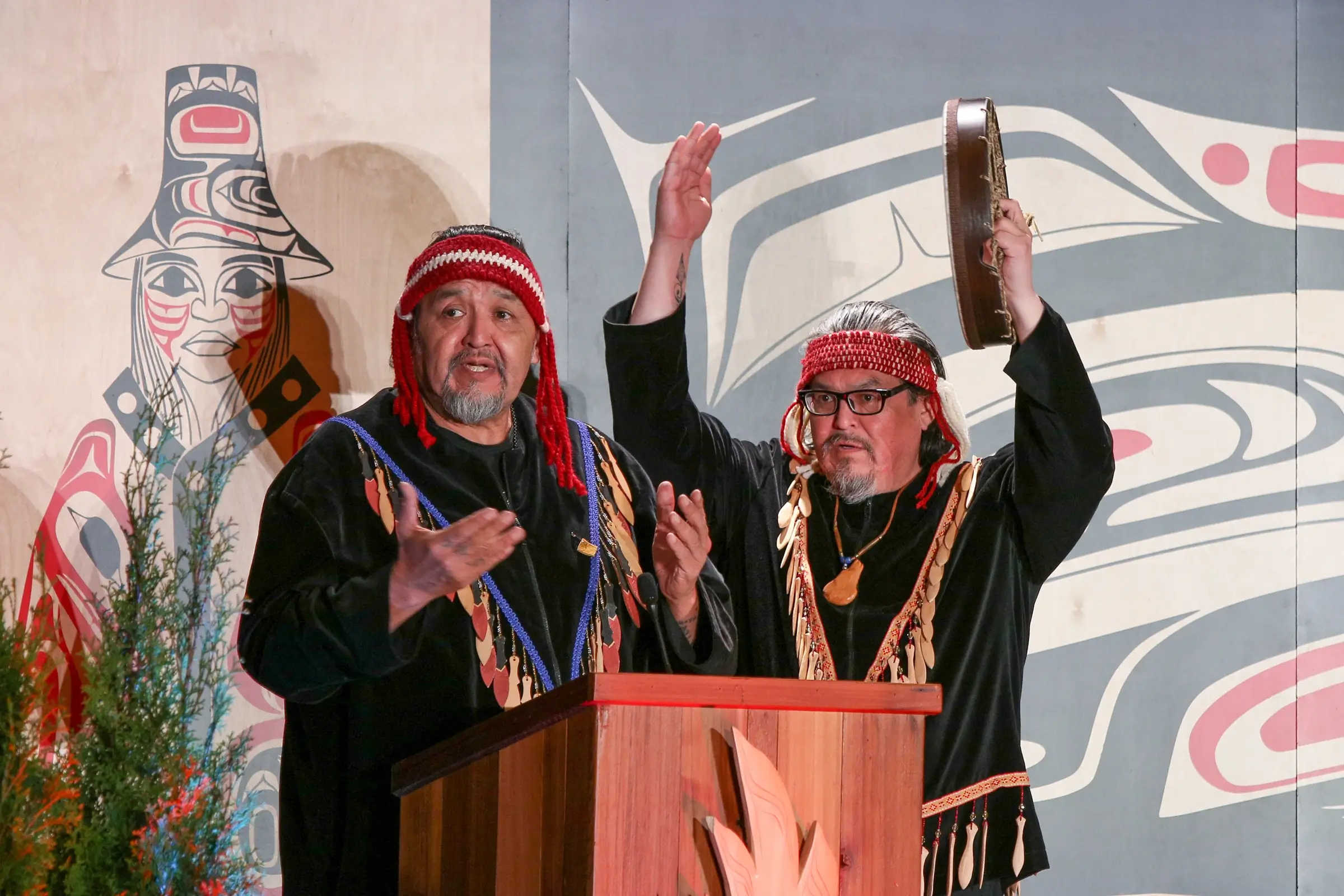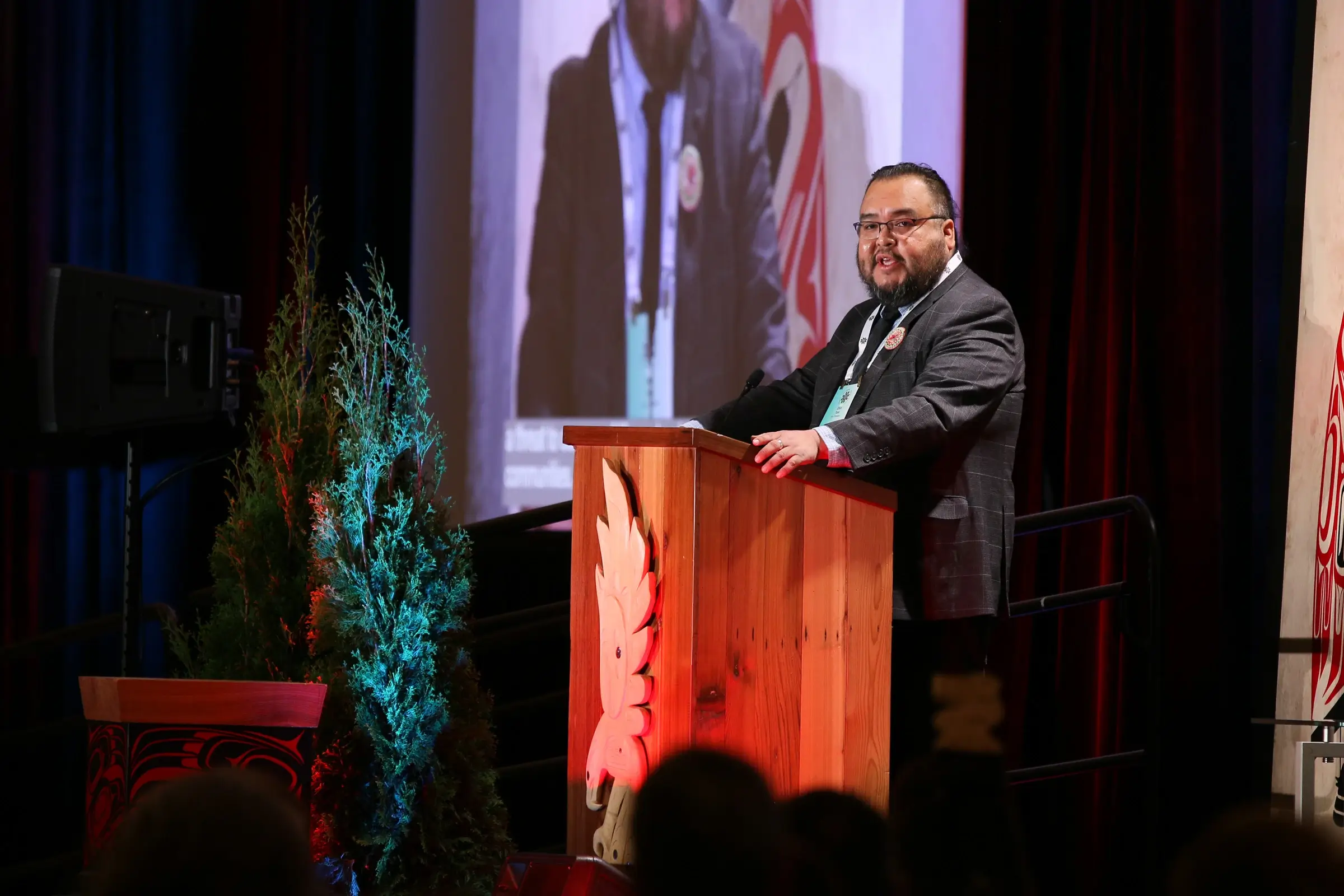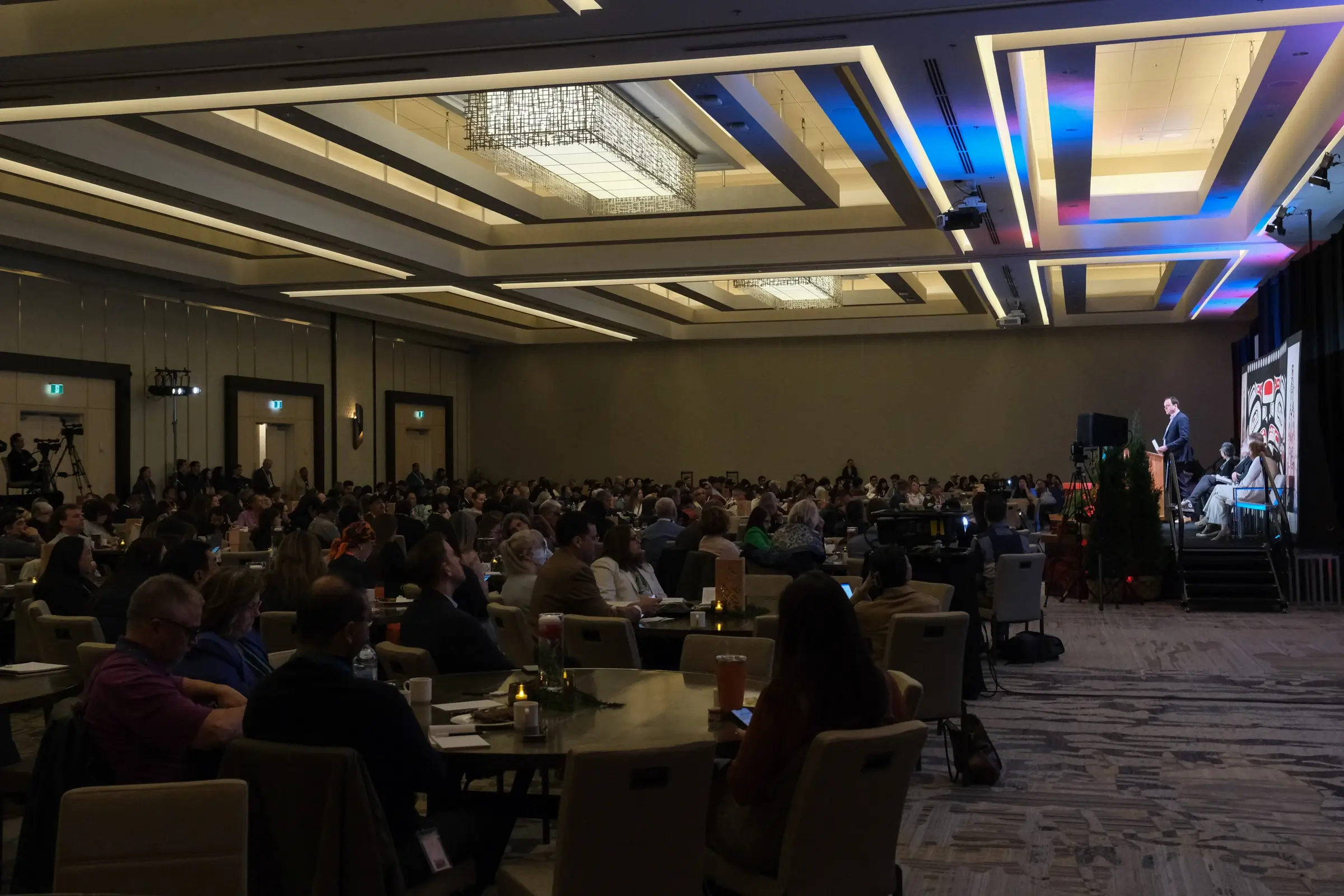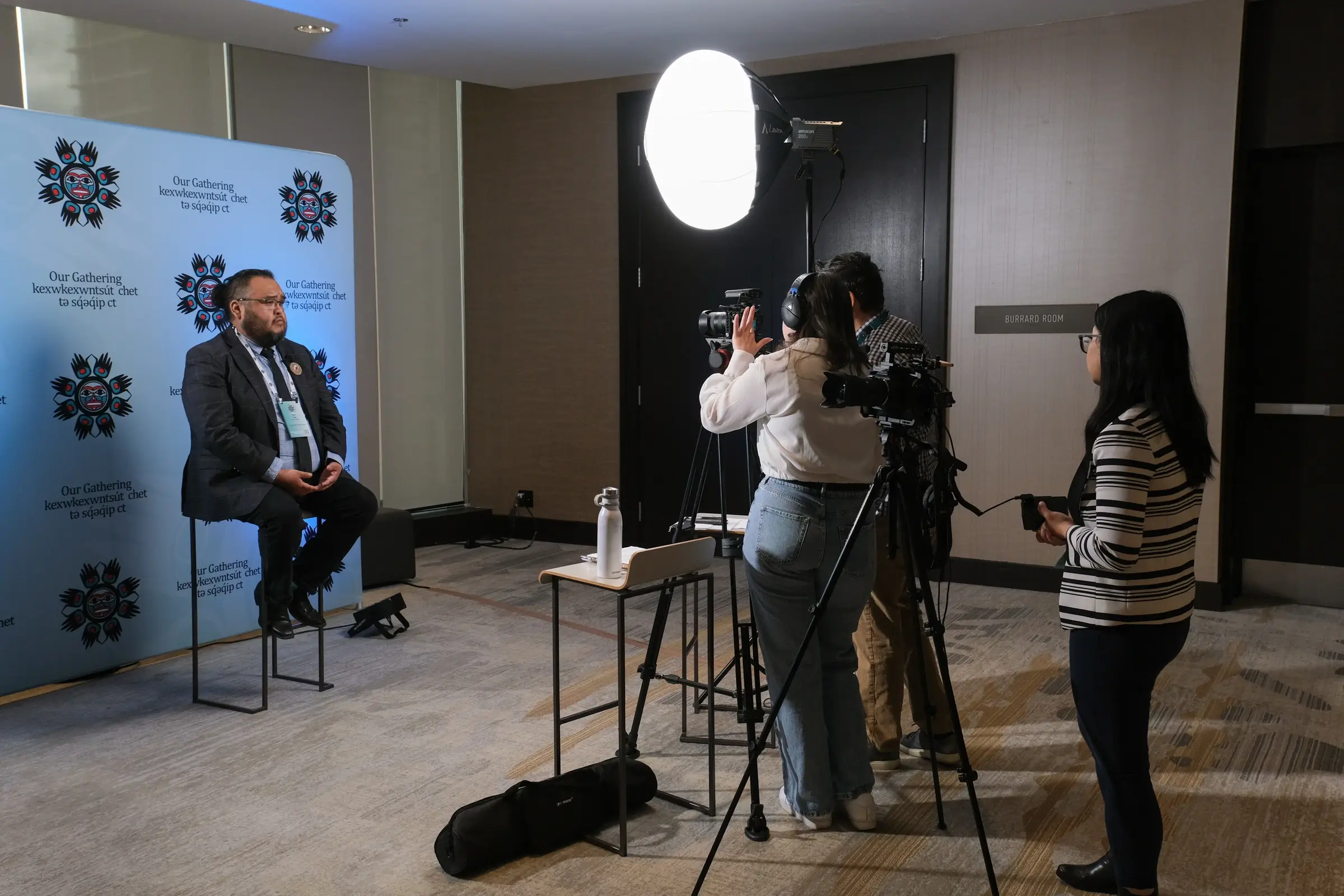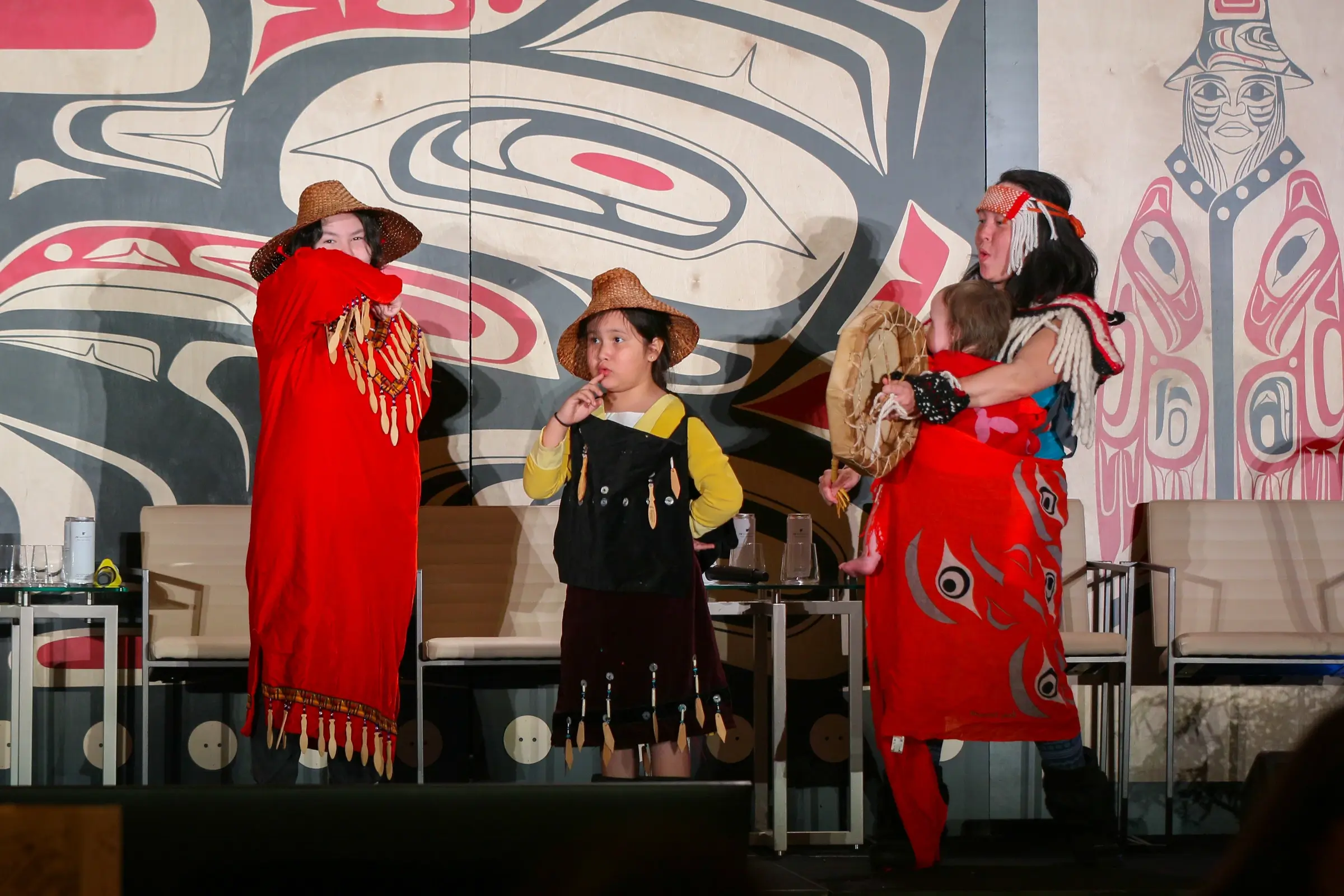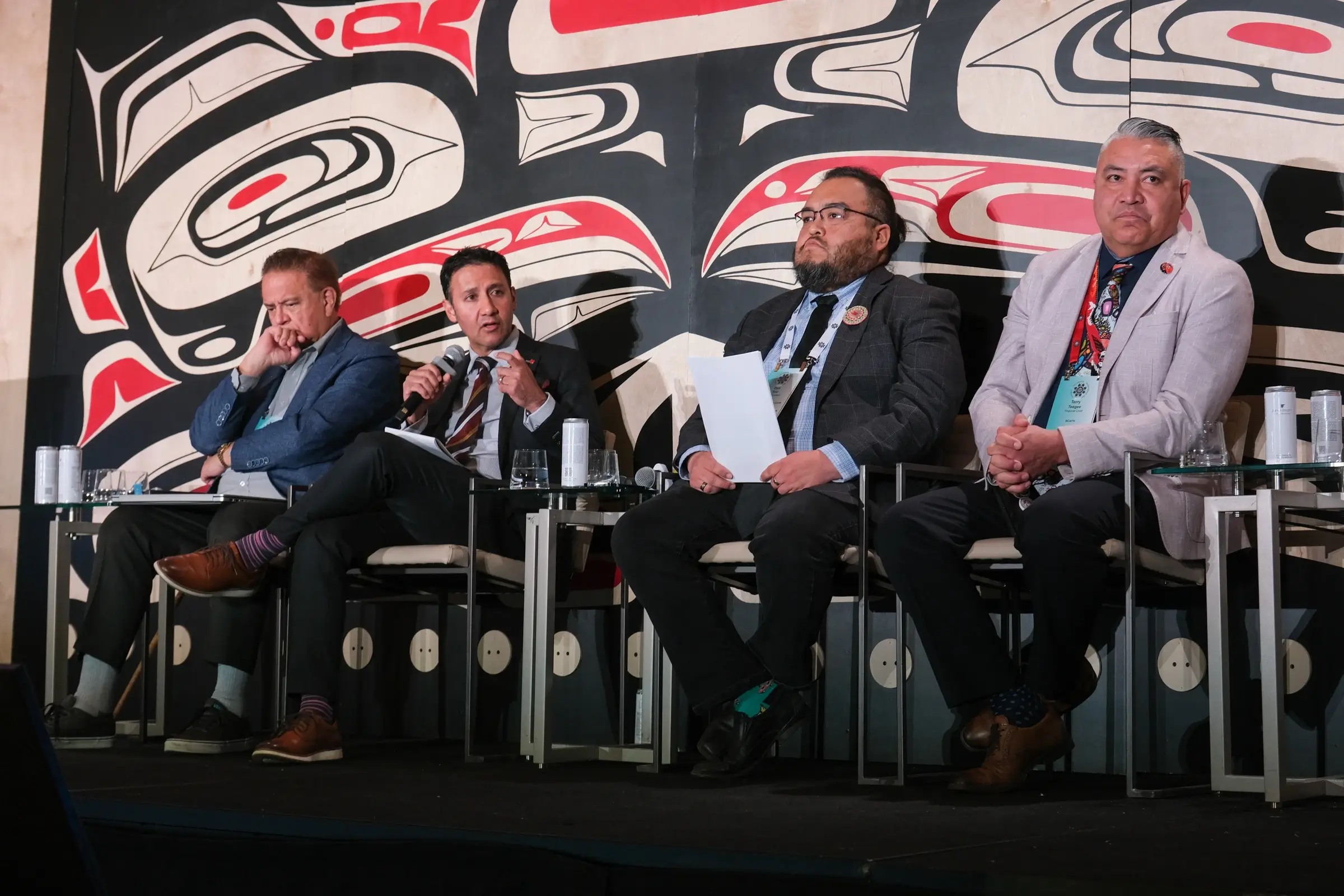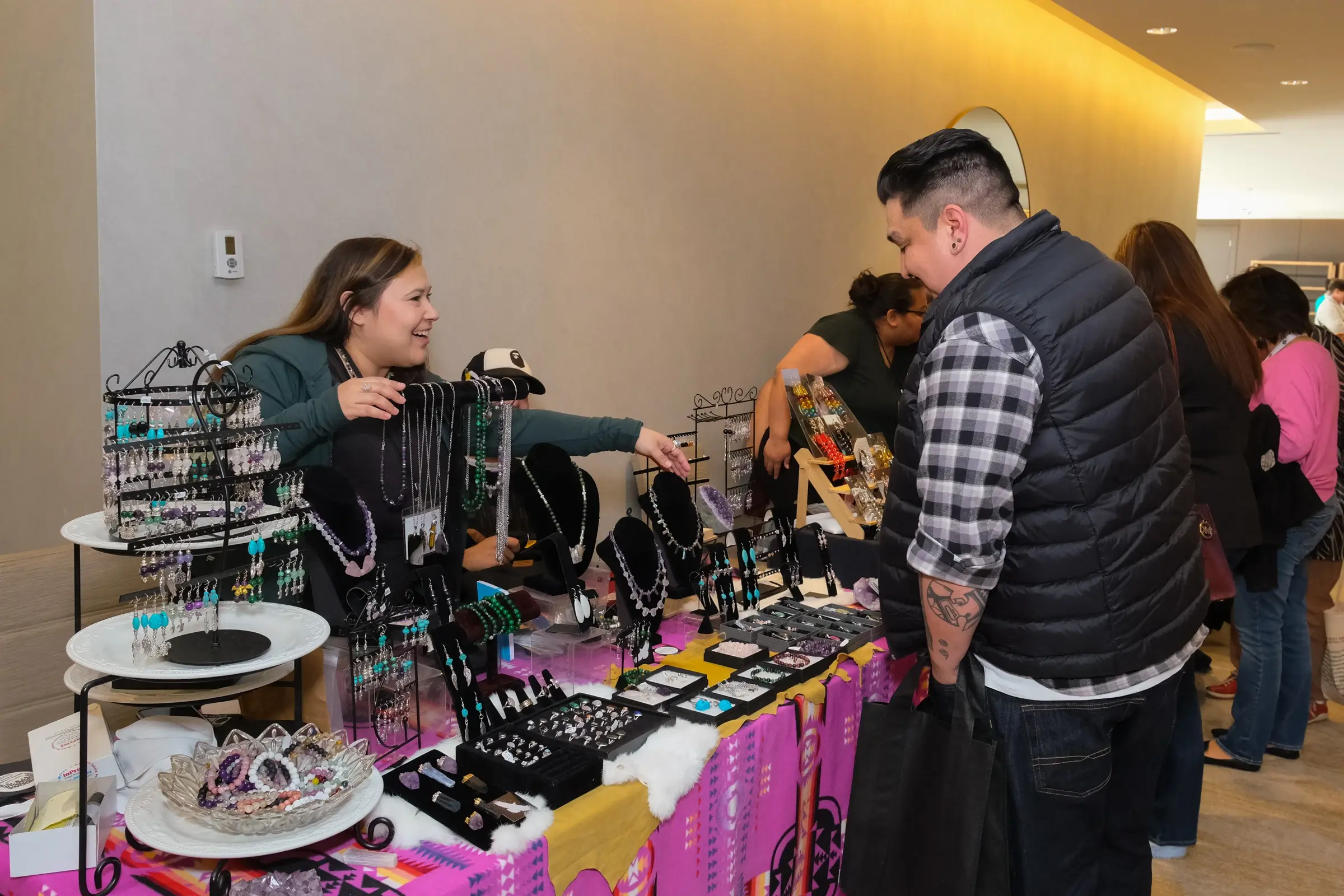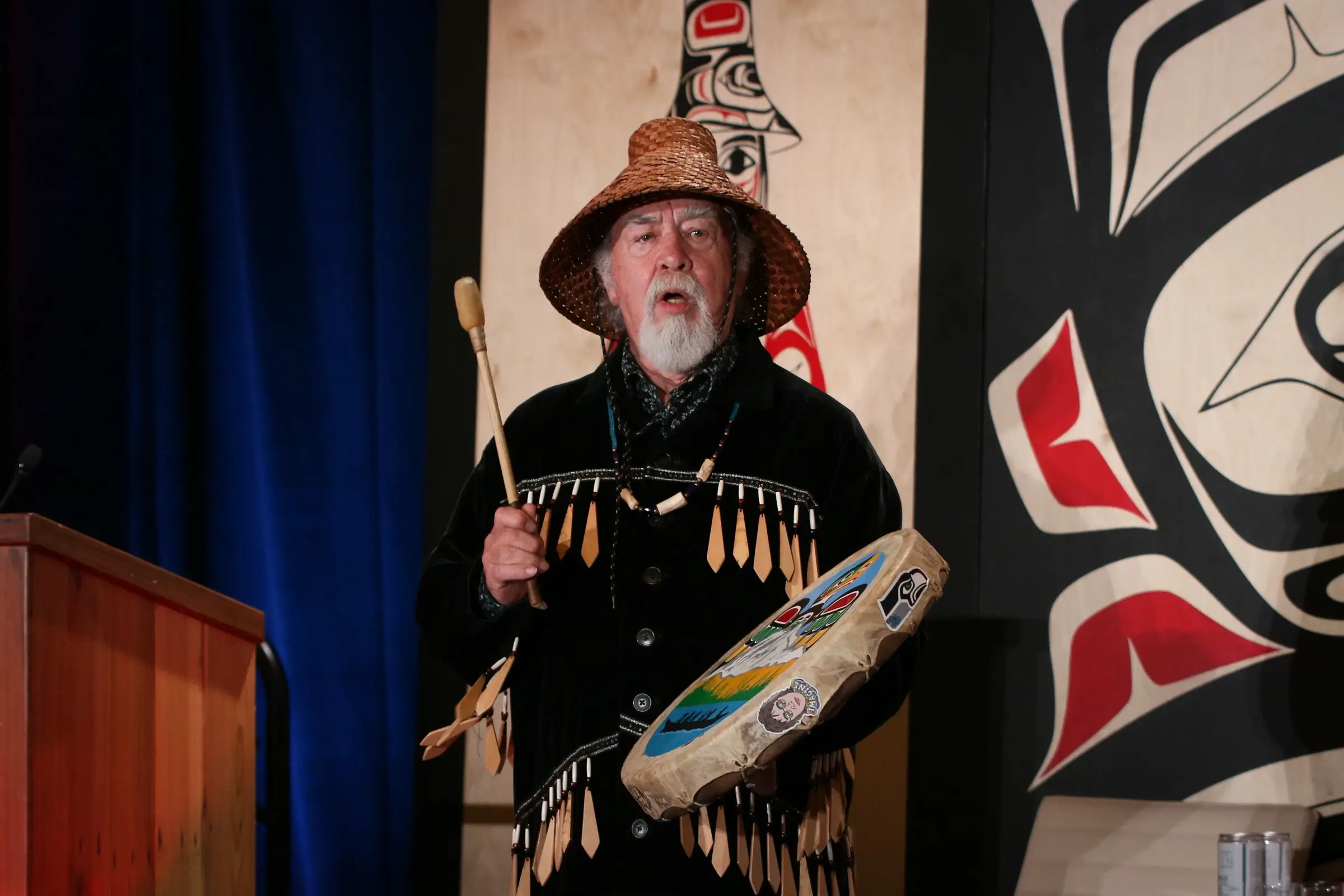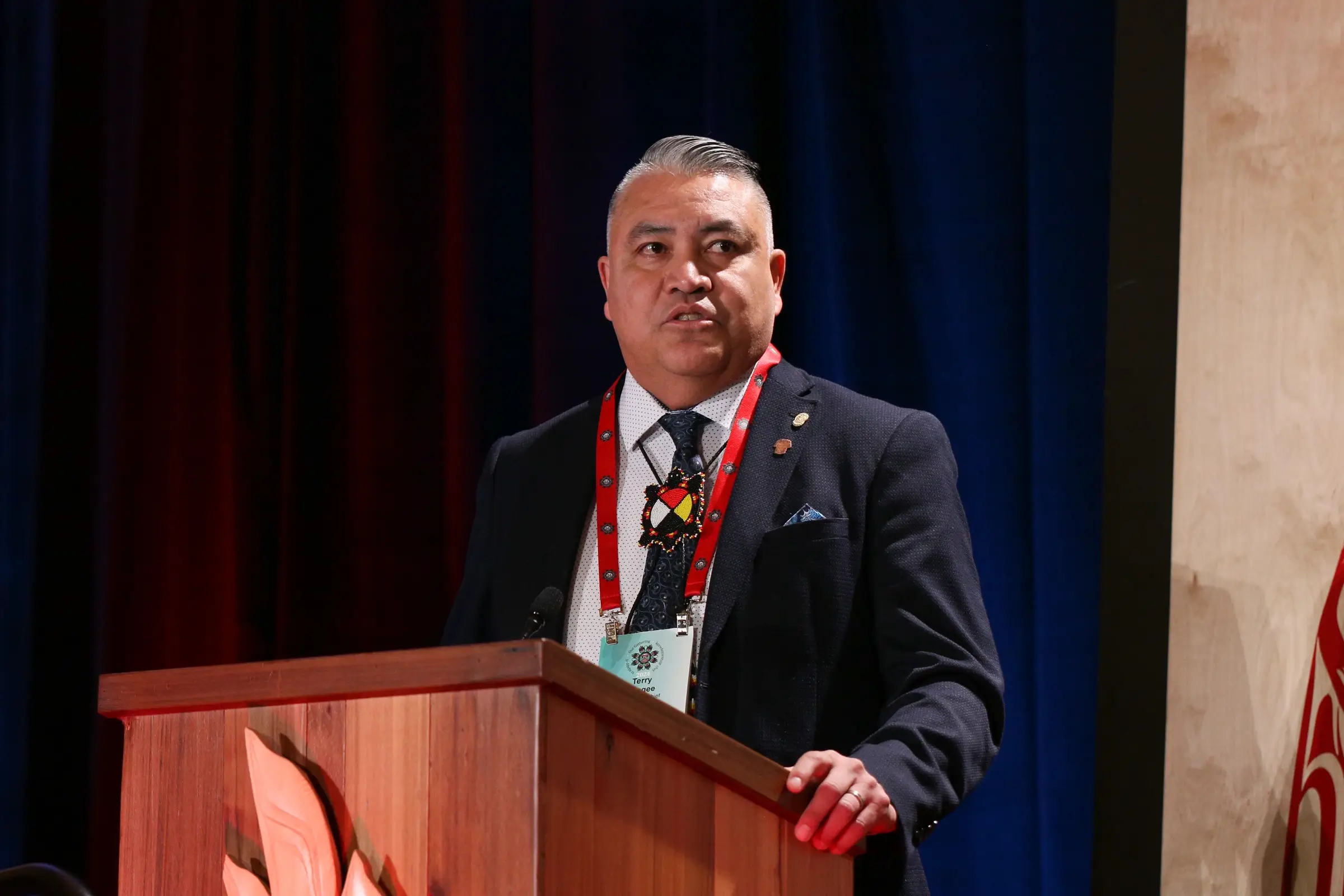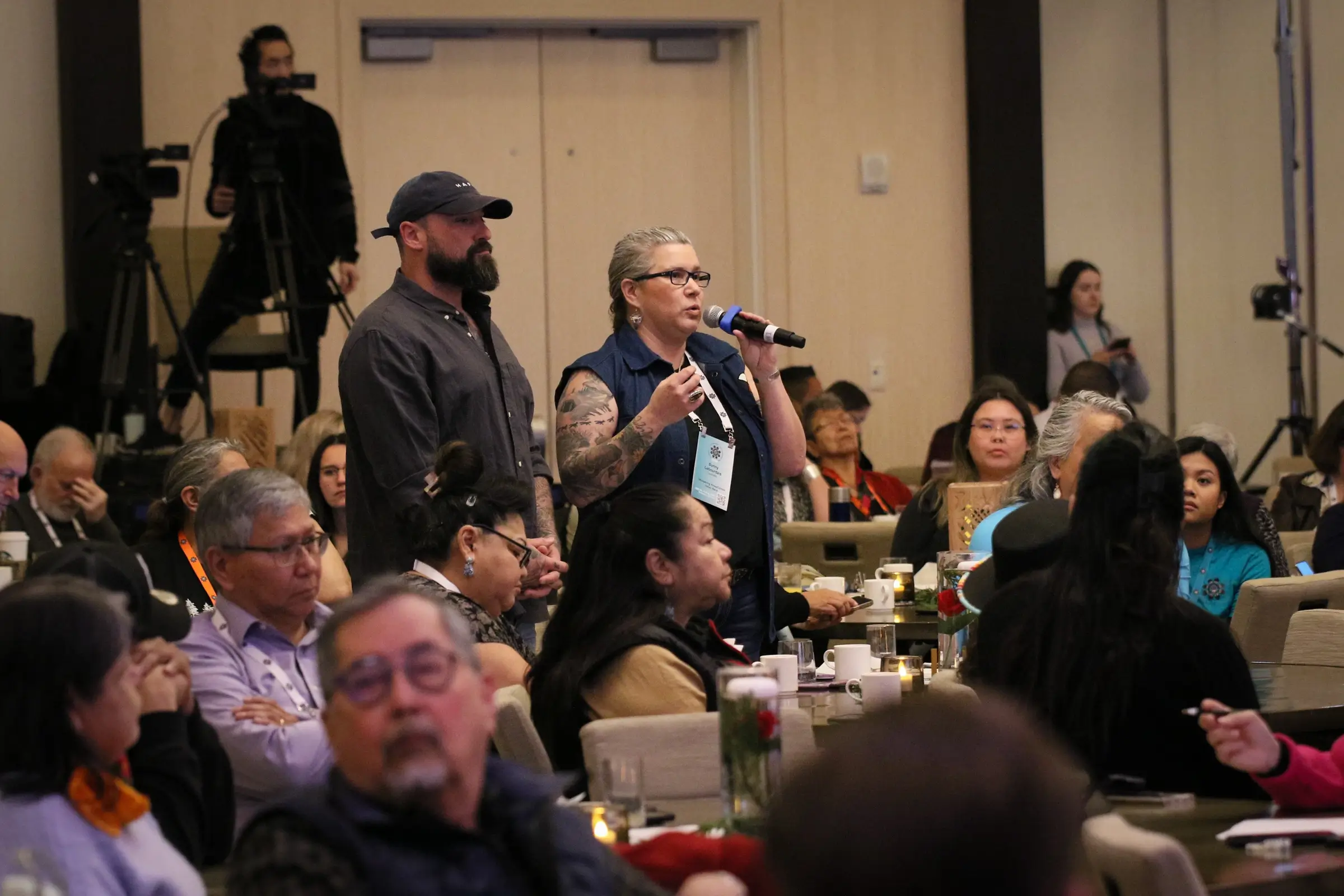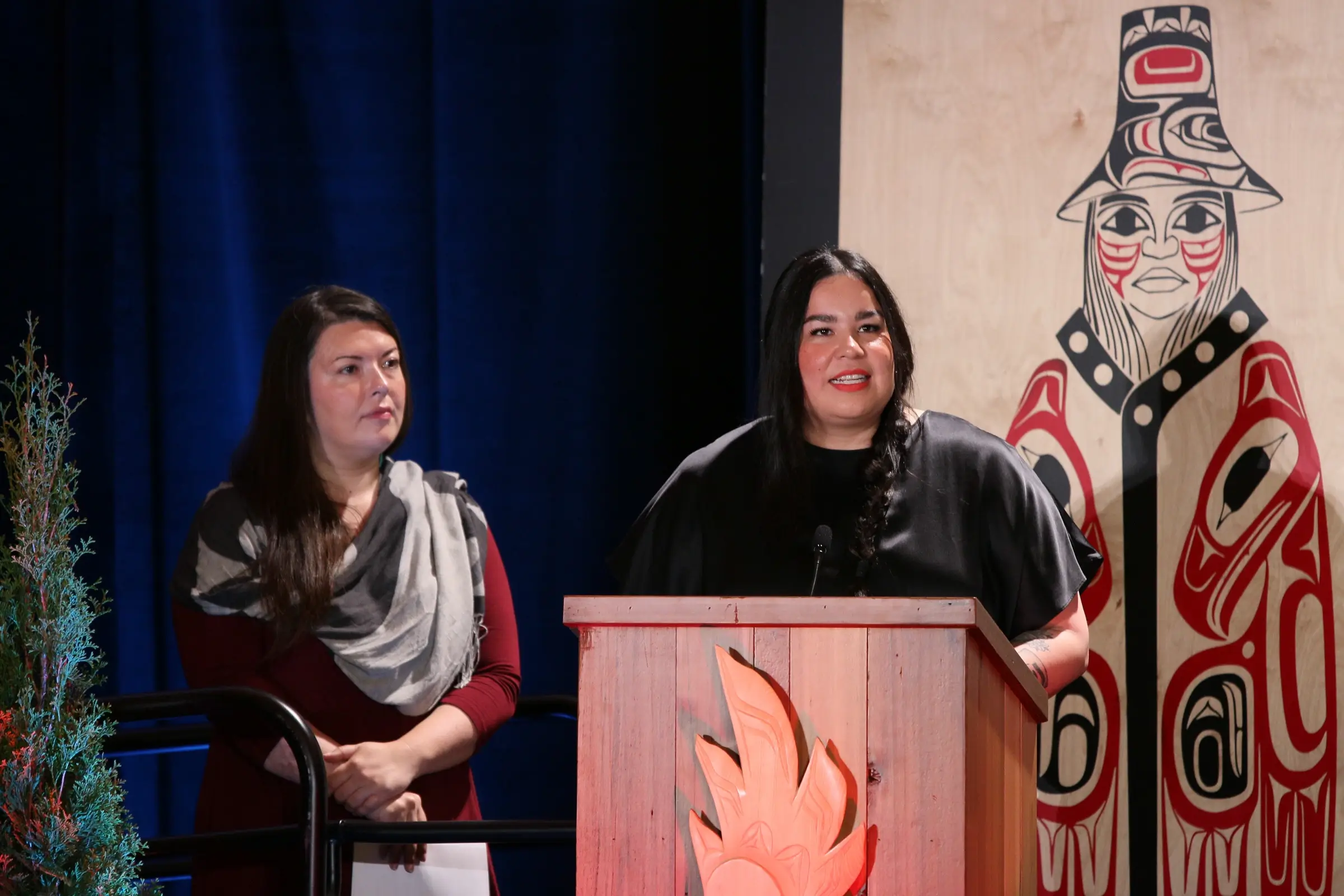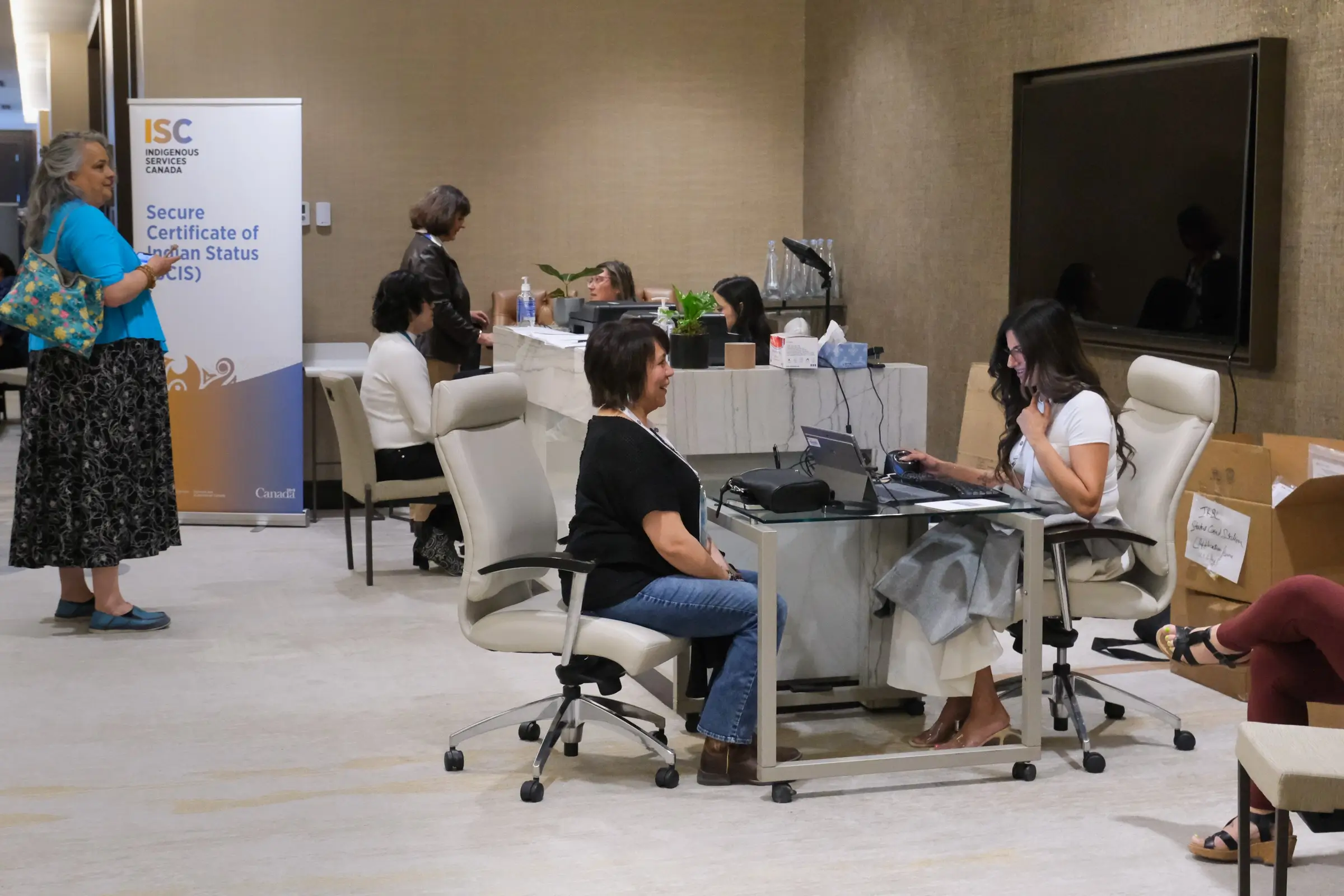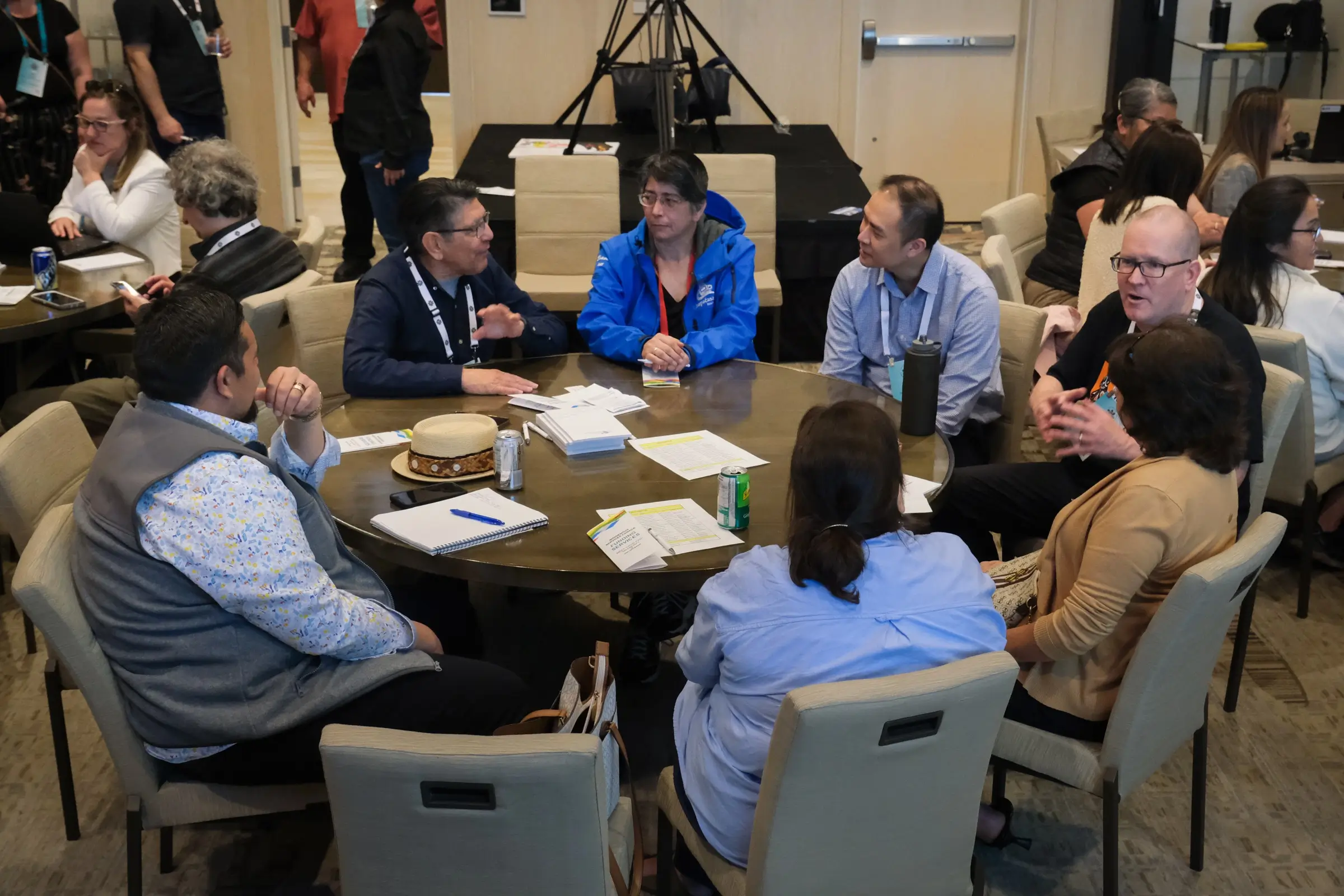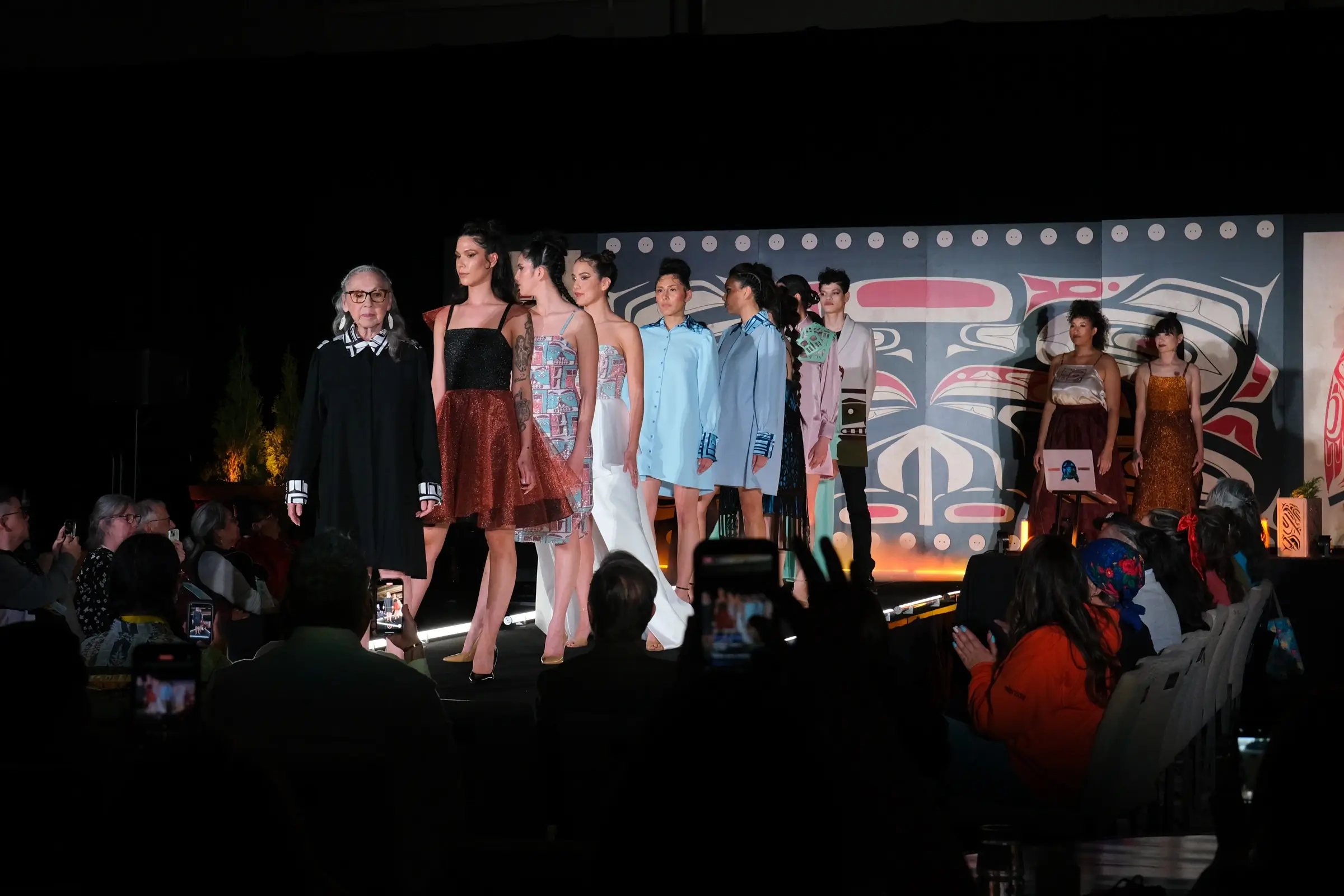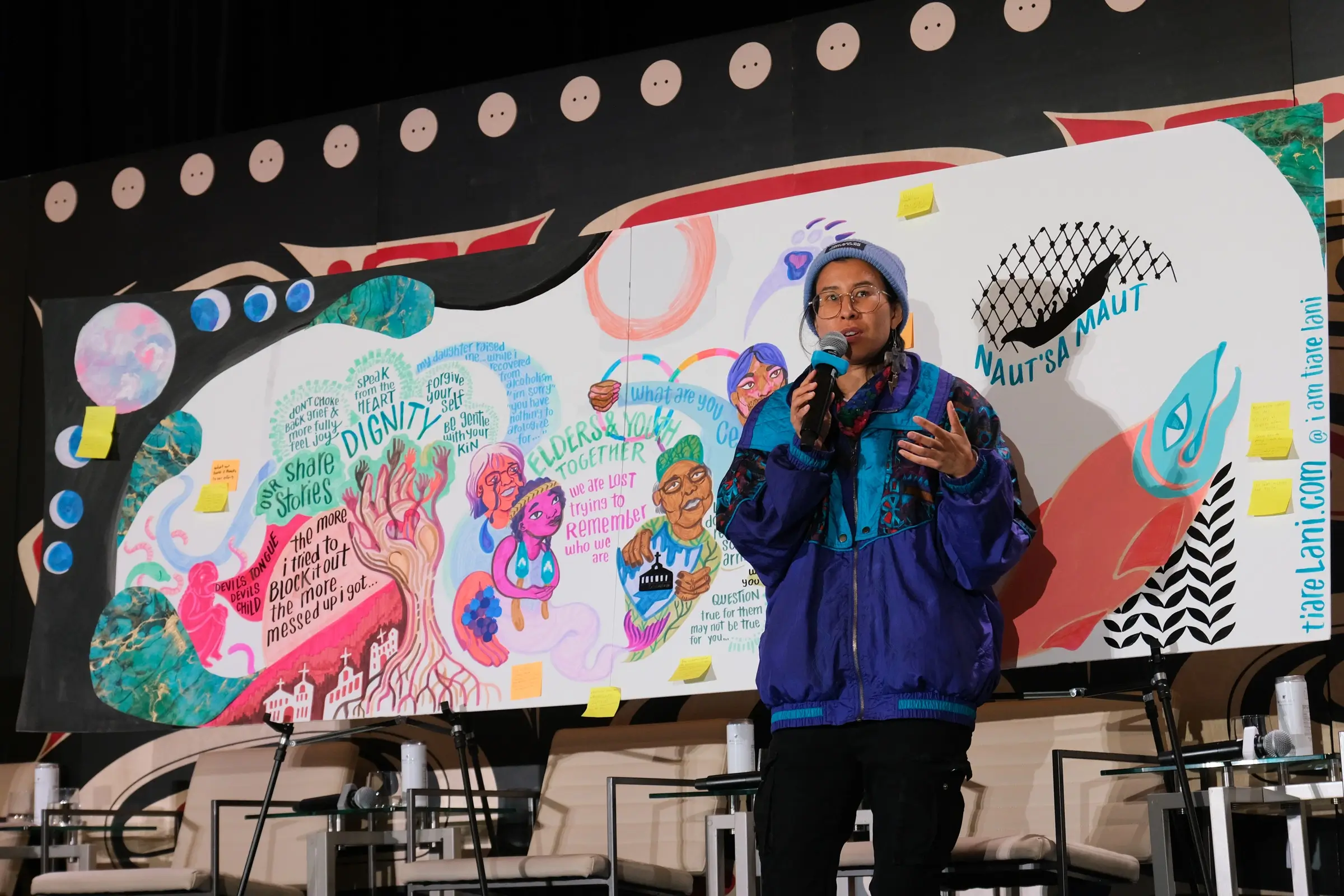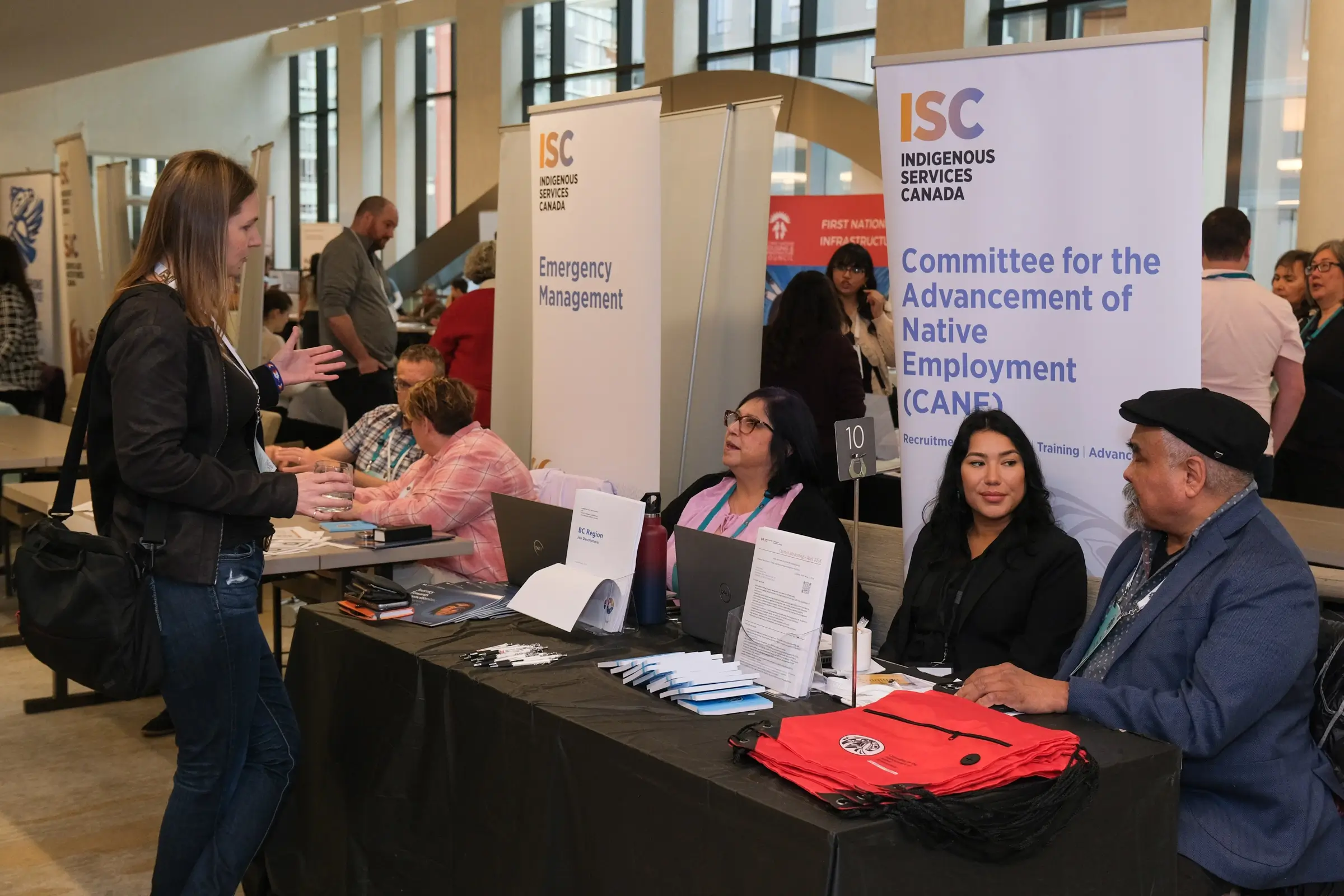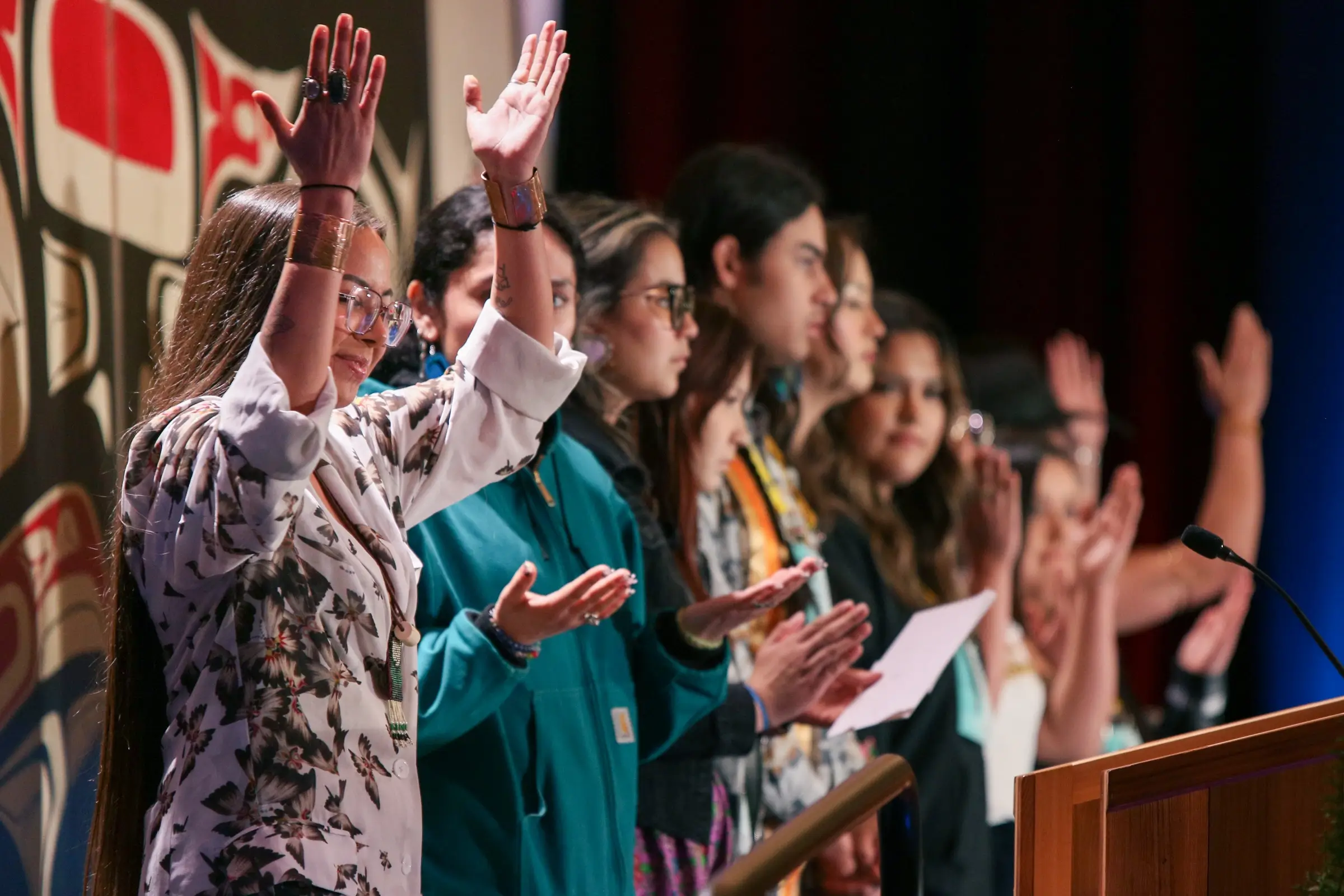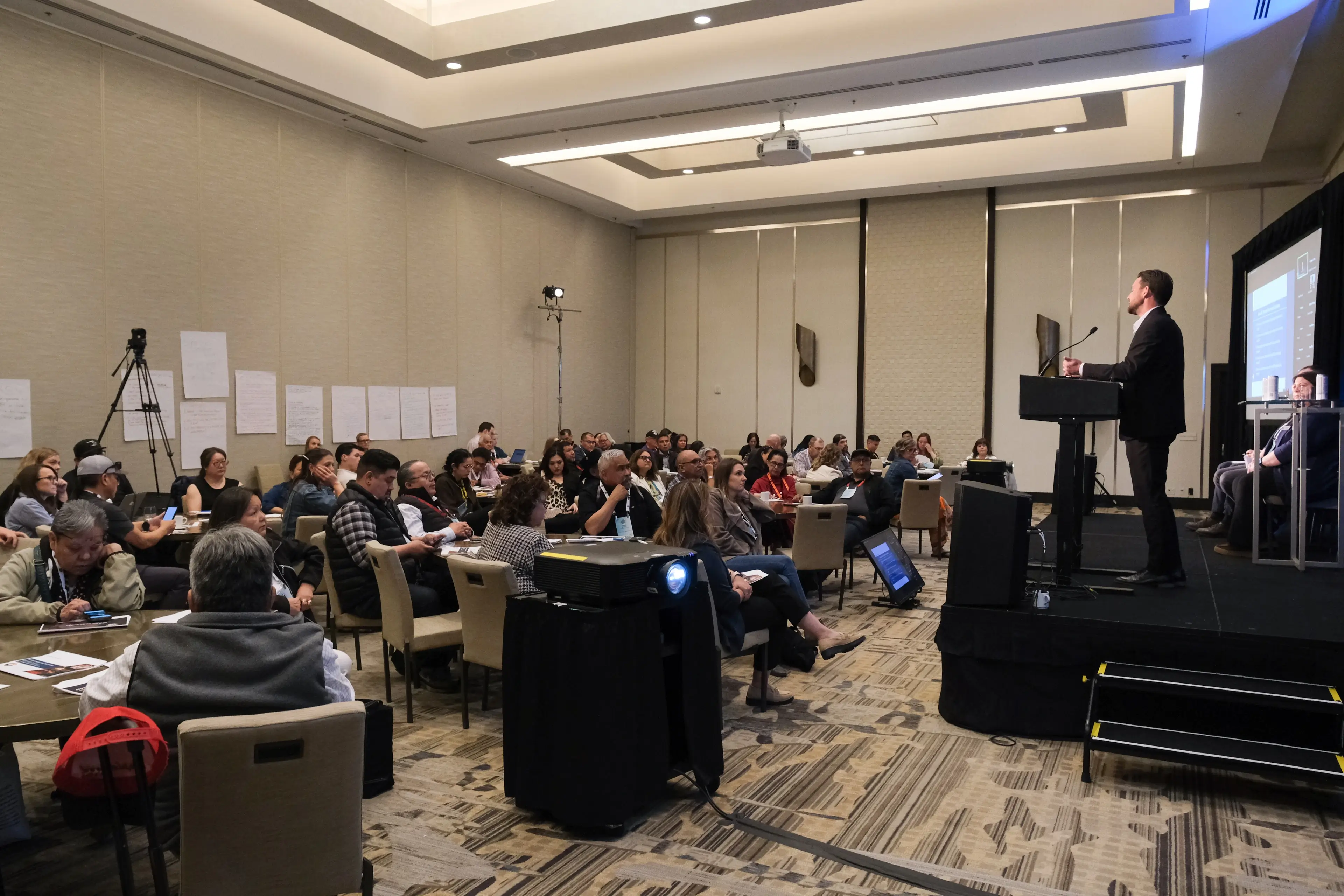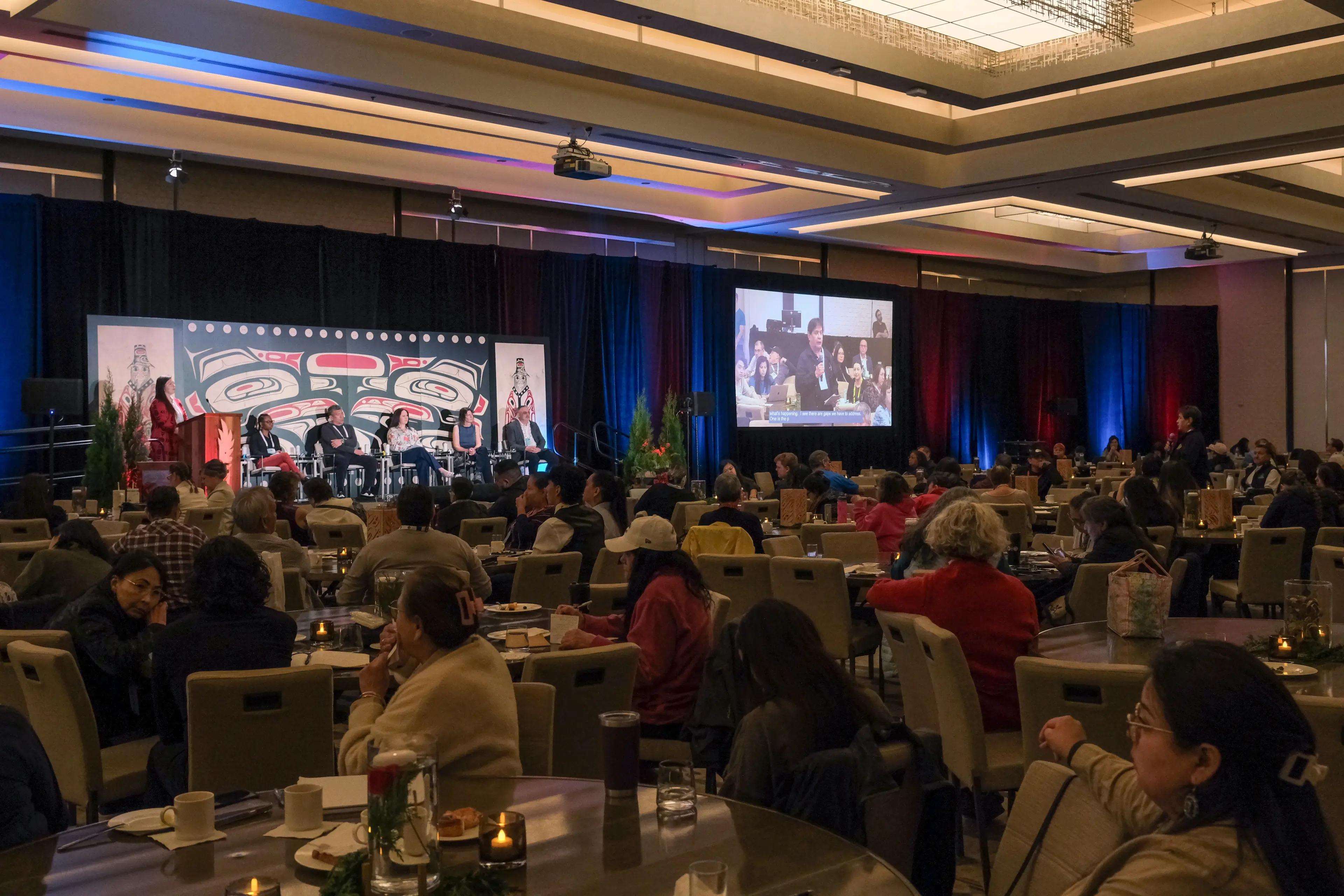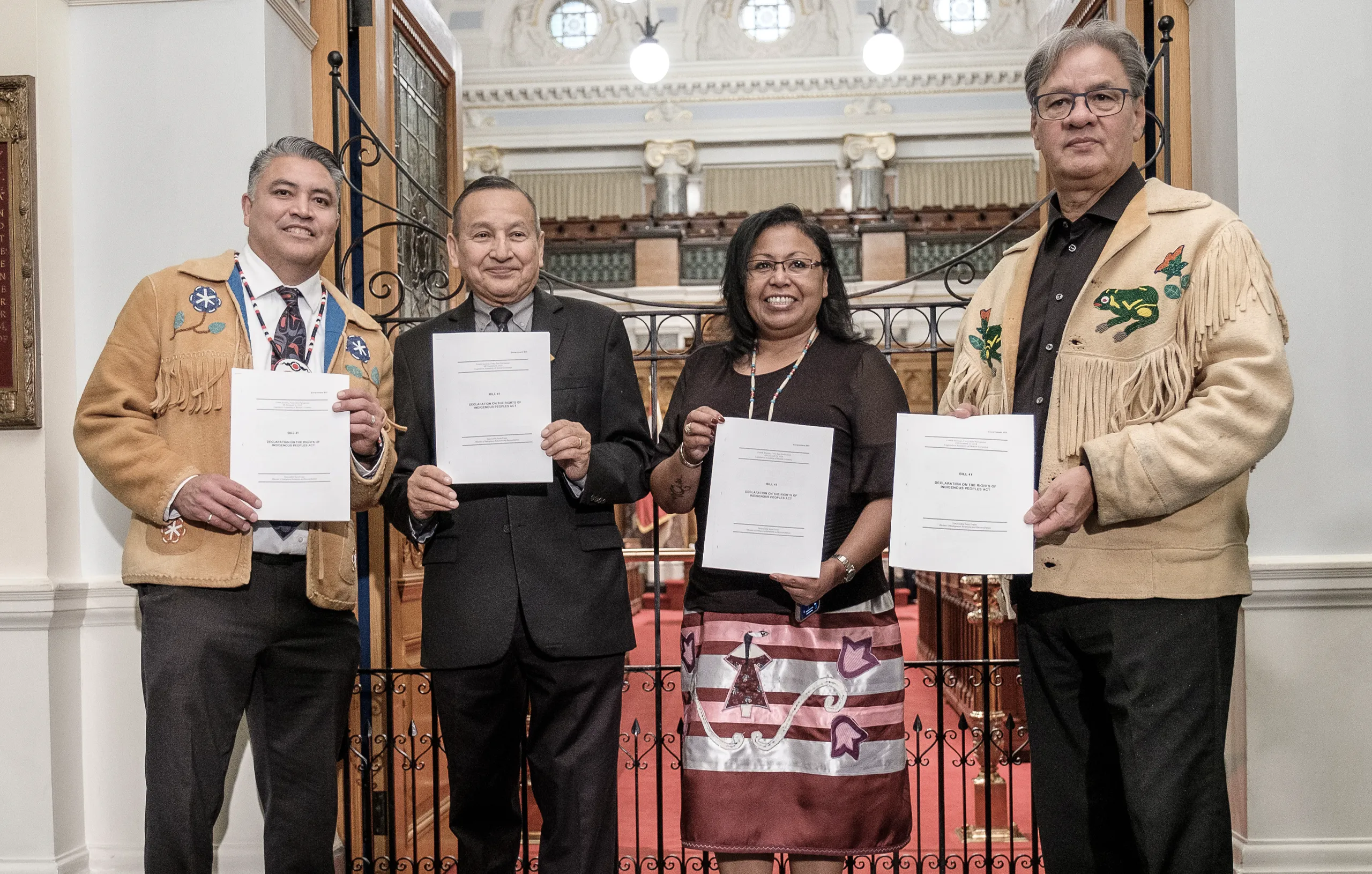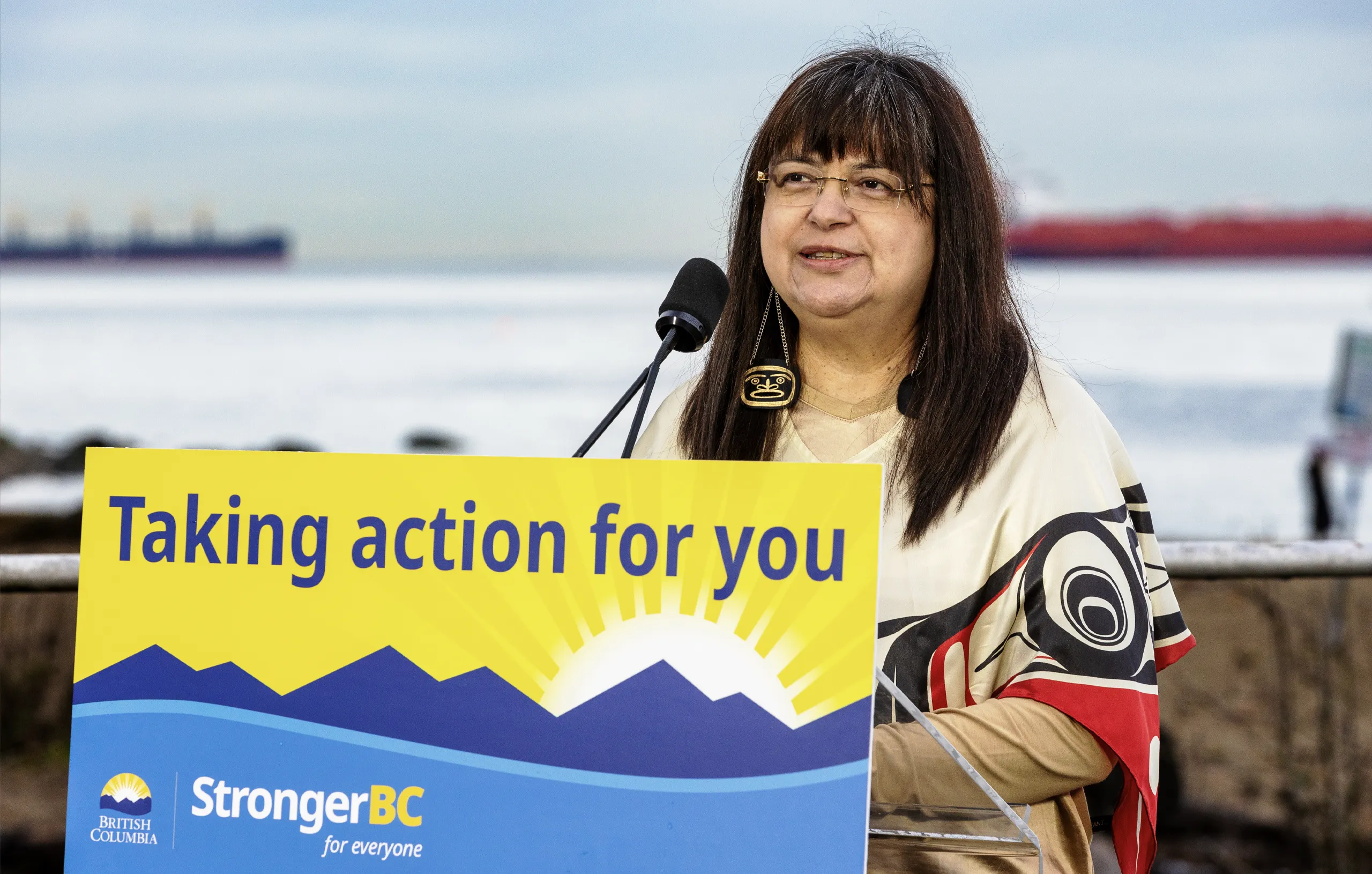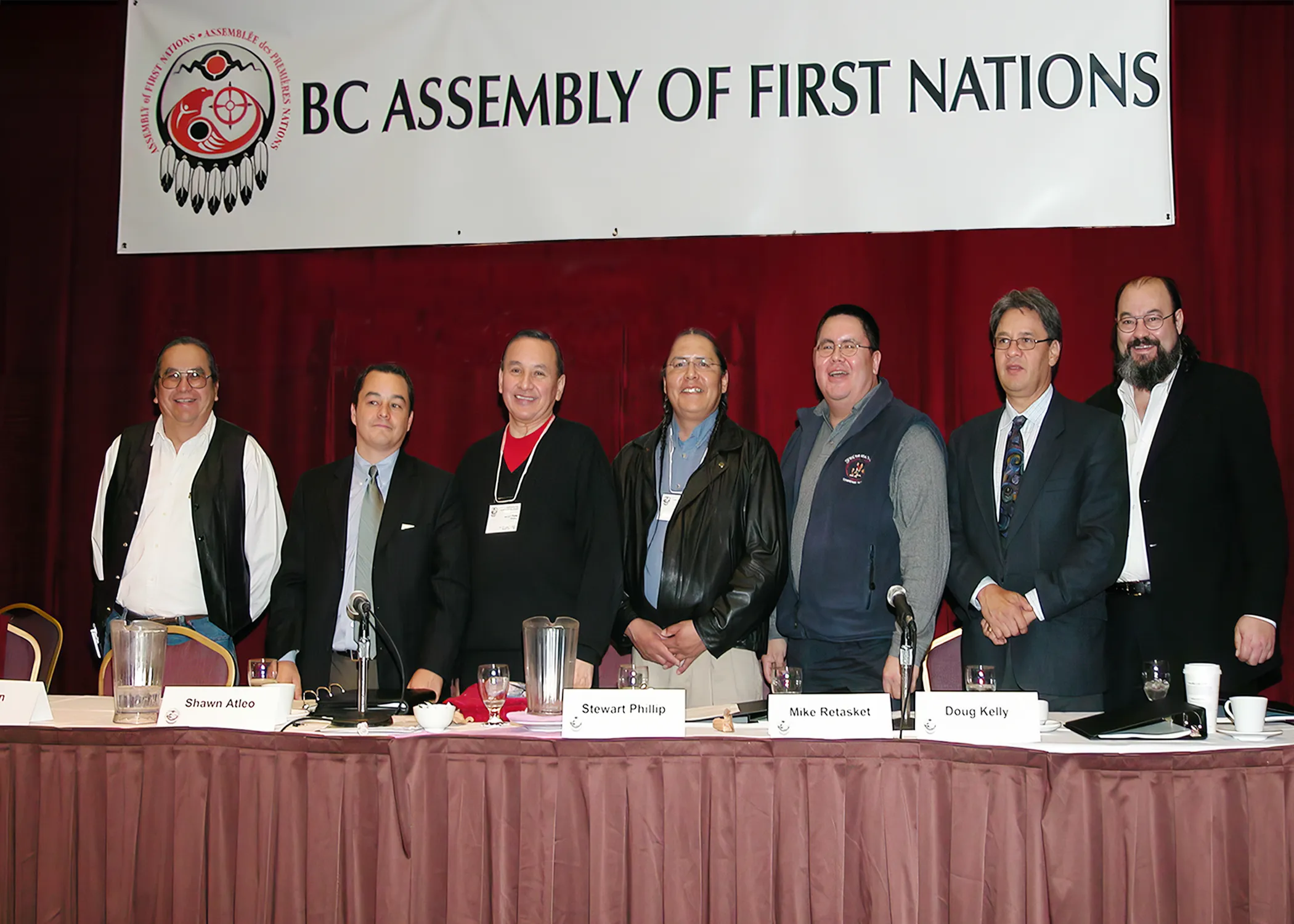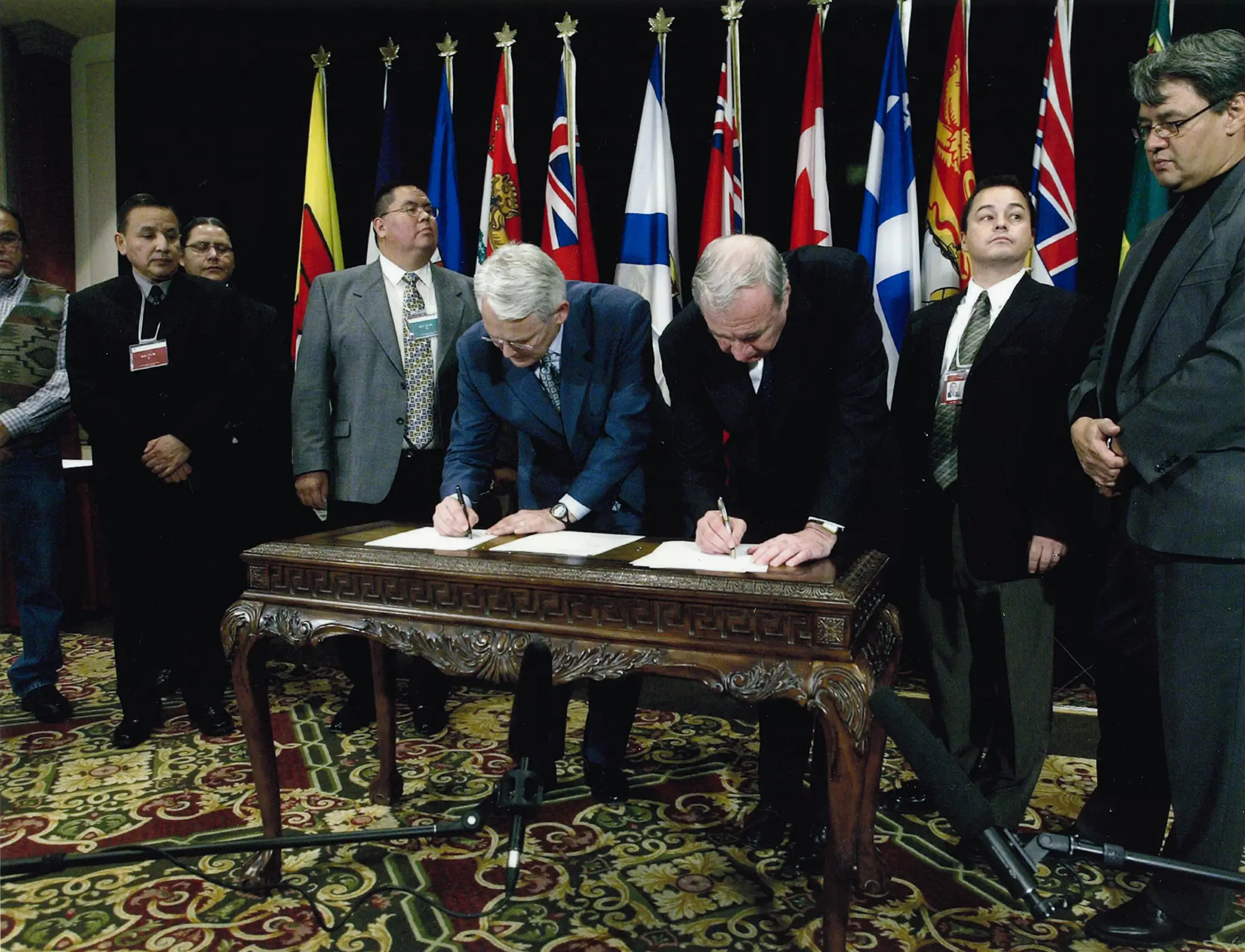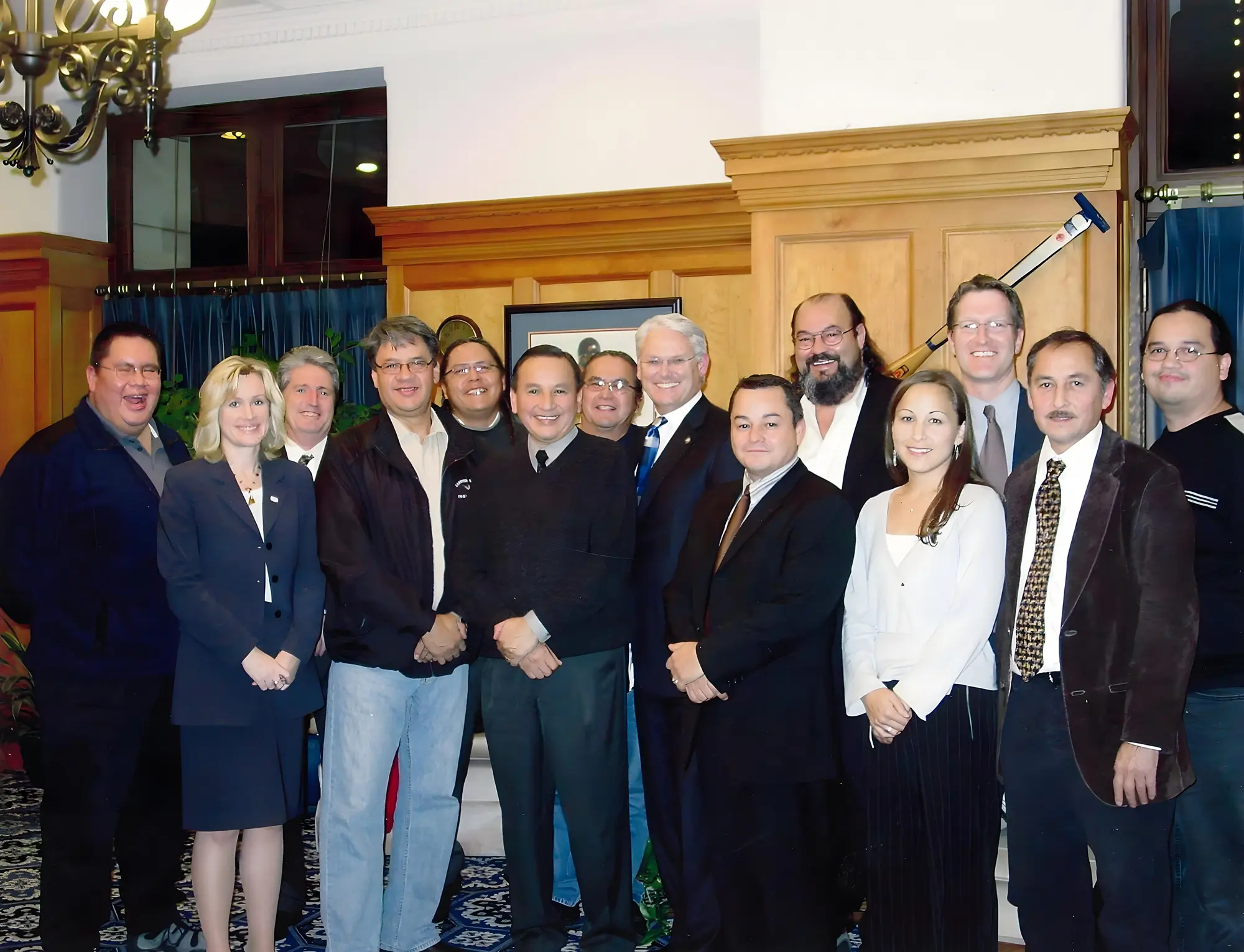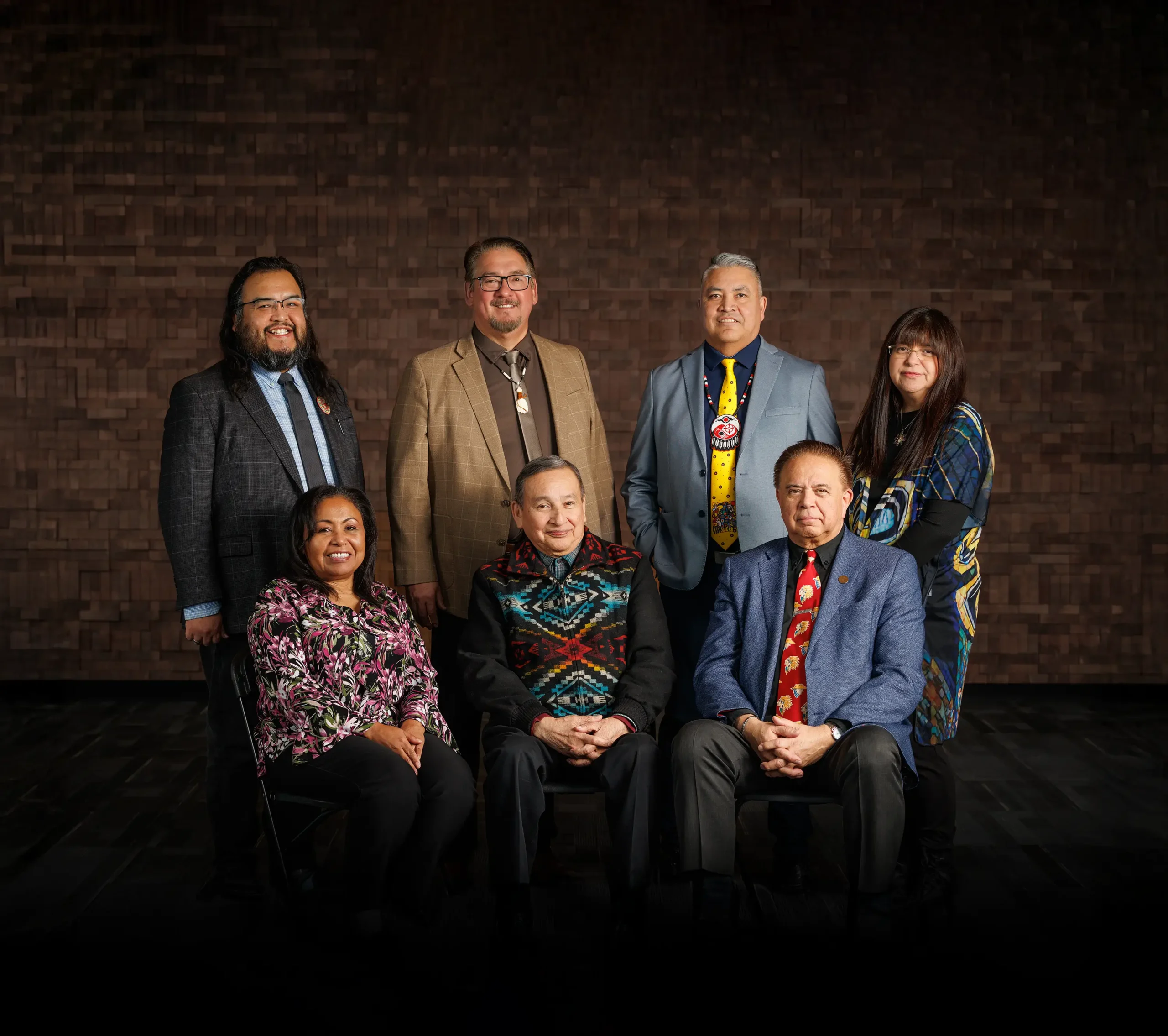March 20, 2025
FNLC Calls on Canada to Prioritize Legislation to Create Legal Protections against Residential School Denialism
(xʷməθkʷəy̓əm (Musqueam), Sḵwx̱wú7mesh (Squamish) and səlilwətaɬ (Tsleil-Waututh)/Vancouver, B.C.) The First Nations Leadership Council (FNLC) is deeply concerned by the rise of Residential School denialism in the province, particularly the egregious misuse of public office by elected officials using their platforms to sow public doubt and promote misinformation and anti-Indigenous racism. The FNLC calls for the government of Canada to prioritize implementation of federal legislation to protect against Residential School denialism, as has been done with Bill C-19 which criminalized Holocaust denialism in Canada.
First Nations leadership across B.C. have passed resolutions at the B.C. Assembly of First Nations and the Union of B.C. Indian Chiefs calling for the rights and testimony of survivors to be upheld, implementation of the Truth and Reconciliation Commission’s Calls to Action, rejection and criminalization of Residential School denialism, and denouncing recent comments made by then-Conservative MLA Dallas Brodie regarding unmarked graves and burial sites at the Kamloops Indian Residential School (UBCIC Resolution 2024-33; BCAFN #02/2025) A similar resolution will go forward to the next First Nations Summit meeting in April.
We commend MP Leah Gazan for introducing the Private Member’s Bill C-413 An Act to amend the Criminal Code (promotion of hatred against Indigenous peoples), which aimed to criminalize Residential School denialism, and hold individuals accountable for spreading hateful speech and misinformation about the Residential School system and Indigenous people. We feel strongly that legislation is needed to combat misinformation, denialism, and racism promoted by elected officials and hate groups. We urge the government of Canada to uphold its obligations under the UN Declaration on the Rights of Indigenous Peoples Act, the United Nations Declaration on the Rights of Indigenous Peoples, and the principles of reconciliation, and urge all members of Parliament to work across party lines to make it an offence to promote hatred against Indigenous peoples by condoning, denying, downplaying, or justifying Residential Schools in Canada or misrepresenting related facts.
“The language and actions of publicly elected officials significantly shape societal attitudes, influence public perceptions, and have the power to either foster understanding and healing or perpetuate division In her statements, MLA Brodie showed blatant disrespect for her position in public office by promoting harmful Residential School denialism on her social media. We are glad Mr. Rustad has removed MLA Brodie from the Conservative Party and believe that she is unfit to sit as an MLA in the legislature. It is essential that the governments of BC and Canada take a strong stance against Residential School denialism, by rightfully recognizing this harmful rhetoric as hate speech. Political leaders must acknowledge the gravity of traumas endured by Indigenous peoples at these institutions and must engage with First Nations and respectfully honour the stories of survivors. As a society we must foster dialogue that supports reconciliation, as all political leaders in BC work to implement the United Nations Declaration on the Rights of Indigenous Peoples,” stated B.C Assembly of First Nations Regional Chief, Terry Teegee.
“Residential School denialists try to hide facts from the public. They intentionally fail to acknowledge or mention the dozens of people convicted of, or who have pled guilty to, sexually and/or physically assaulting First Nations children in Residential Schools. They also neglect to speak about the thousands of abusers located by multiple private investigation firms contracted by the Federal Government,” said Hugh Braker of the First Nations Summit Political Executive. “These denialists purposely reject the words of the BC Supreme Court Judge, who at the sentencing of offender Henry Plint to 11 years in prison, stated that Residential Schools were ‘…factories for child abuse’ and that ‘the Federal Government has admitted that up to 6,000 Indian Residential School children died in Residential School.’” “Denying or ignoring the truth about one of the most horrendous parts of Canada’s history is an obstacle to reconciliation and does nothing except cause residential school survivors’ additional pain and suffering,” Braker concluded.
Grand Chief Stewart Phillip, UBCIC President concluded, “Indigenous peoples have been combating racism and suppression of our knowledge from the highest levels of government since the establishment of Canada, so it comes as no surprise that denialist views which aim to minimize the harms of Residential Schools and intentionally mislead and embolden the public against us endure within our public institutions. Residential School denialism is not about academic debate or questioning history in good faith, it is an ugly and thinly veiled attempt to sow doubt, belittle the experiences of survivors, and distort our shared knowledge from survivors and archival and archaeological research which detail the profound intergenerational harms of these institutions. I implore the current, and any subsequent government of Canada, to take bold legislative action to protect against the spread of dangerous anti-Indigenous racism and denialist rhetoric in equal measure to Holocaust denialism protections. We need only look to our southern neighbours to see the harrowing impacts of leaving hate unchecked.”
-30-
The First Nations Leadership Council is comprised of the political executives of the BC Assembly of First Nations (BCAFN), First Nations Summit (FNS), and the Union of BC Indian Chiefs (UBCIC).
For further information, contact:
Hugh Braker, FNS Political Executive, Phone: 604-812-2632
Annette Schroeter, BCAFN Communications Officer: 778-281-1655
Grand Chief Stewart Phillip, UBCIC, Phone: 250-490-5314
